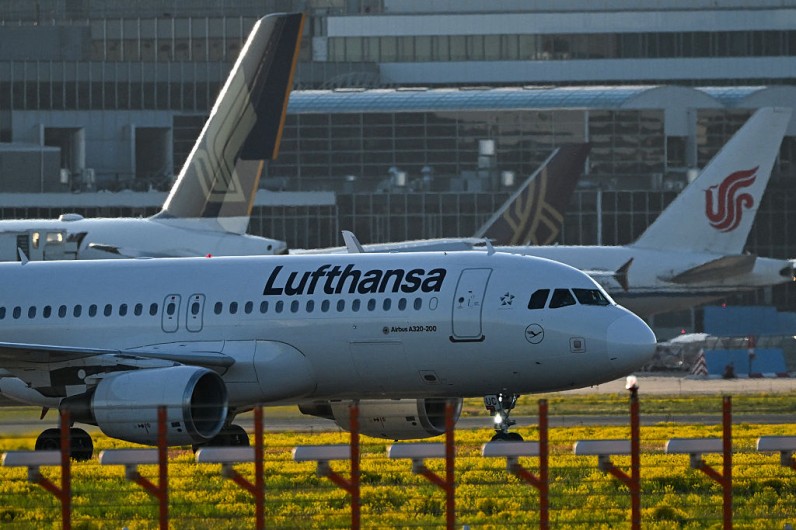
German airline giant Lufthansa announced Monday that it will slash 4,000 administrative roles by 2030, marking its largest workforce reduction since the COVID-19 crisis.
The move is part of a sweeping effort to improve efficiency through digitalization and automation while steering the company toward stronger profitability.
The job cuts will mainly affect staff in Germany and focus on non-operational positions. Lufthansa emphasized that the reductions will be carried out in consultation with employee representatives.
According to NDTV, the group, which employs about 103,000 people worldwide, operates Eurowings, Austrian Airlines, Swiss, Brussels Airlines, and recently acquired ITA Airways in Italy.
The decision comes as Germany's economy faces a prolonged slowdown.
With unemployment at its highest level in a decade and industries under pressure from global competition, Lufthansa joins a growing list of German companies announcing large-scale layoffs. Just days earlier, Bosch confirmed it would cut 13,000 positions globally.
Lufthansa's leadership explained that the planned cuts are aimed at eliminating duplicated tasks and outdated processes.
"Profound changes brought about by digitalization and the increased use of artificial intelligence will lead to greater efficiency in many areas and processes," the company said.
Lufthansa to Cut 4,000 Administrative Jobs by 2030 Amid AI Push https://t.co/waIdbJtqSm
— The Wall Street Journal (@WSJ) September 29, 2025
Lufthansa Targets 8–10% Margin by 2028
Investors responded positively to the announcement, with Lufthansa shares rising 2% shortly after markets opened.
Analysts said the news reassured stakeholders that the airline's turnaround strategy, first announced last year, remains on track.
The group also unveiled updated financial targets for the coming years. By 2028, Lufthansa expects to achieve an adjusted operating margin of 8 to 10 percent, raising its previous goal of 8 percent, Reuters reported.
It also set a target for adjusted free cash flow of more than 2.5 billion euros annually.
Lufthansa's core airline division, long described by executives as a "problem child," has been struggling with high costs and labor challenges.
The company hopes greater integration with subsidiaries and the addition of more than 230 new aircraft by 2030 will strengthen performance.
While Lufthansa has successfully managed expenses at its bases outside Germany, particularly in Rome with ITA Airways, the group has faced greater resistance to cost reductions at home.
Executives acknowledged this gap but said the latest restructuring plan was designed to bring the German operations more in line with its international units.







Join the Conversation